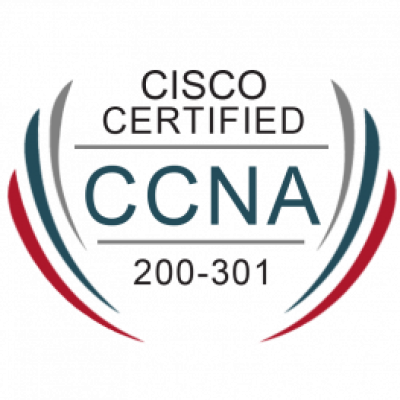Cisco Certified Network Associate CCNA (200-301 v1.1)

GH₵2500
GH₵3500
Cisco is a world-wide leader in IT, networking, and security solutions. Earning a Cisco Certified Network Associate Certification (CCNA) is a valuable first step toward a career in IT. To earn CCNA certification, you must pass one exam that covers a range of basic IT knowledge, including networking and security fundamentals, IP services, software development, and automation. CCNA certification gives you a solid foundation to start or build the career you want. The goal of this course is to provide you with all the tools you need to prepare for the CCNA exam — including text explanations, video demos, lab activities, self-assessment questions, and a practice exam — and increase your chances of passing on your first try.
Learn more
 0
0 